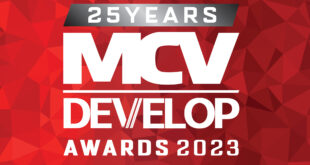If the last couple of years have taught us anything, it’s that we can never take too much for granted. Covid-19 may or may not be something that we continue to look at through the rear view mirror, but its legacy of remote and hybrid working continues to provide opportunities while posing questions around productivity.
Throw in the ever-present issue of a persistent skills shortage and a cost of living crisis that was nowhere to be seen twelve months ago, and it’s clear that it’s a unique and challenging time for game industry recruitment. To help us get a clear picture of how things have been, how they are now and how they might develop over the coming year, we’ve asked a crack team of in-house and agency recruitment experts to give us their take on the state of games industry recruitment, both for those with positions to fill and those eager to find their next challenge. Next up is Eduardo Goncalves, head of creative talent acquisition for Keywords Studios UK and Europe.
What have been the main challenges that recruiters have faced during 2022 and how have they/you worked to overcome them?
Recruitment has been changing at a very fast pace as the video games industry continues to grow – and so do its challenges. A talent shortage was reported by 69% of companies globally in 2021, sparked by a variety of factors such as the COVID-19 pandemic and mass retirement rates, leading to increased time and difficulty in filling positions.
To combat the talent shortage, recruiters are looking to highlight their company offering, culture, values, and people insights on career websites, optimising job ads to make them more engaging and personable. This alongside hosting career events to attract and educate potential candidates. The implementation of referral programs can also be a great strategy to attract quality candidates.
By building, managing, and widening quality talent pools for future requirements, recruiters can anticipate needs and add value back into the games industry and its pool of candidates, who have already developed a positive impression of your brand and role.
The candidate market has changed, and we are no longer picking talent, talent is picking us. Improving the candidate experience is essential for successful recruitment and to build a strong company culture.
There are a number of ways to improve candidate experience in the recruitment process; developing clear job descriptions including salary range information when possible, setting up an easy application process, being transparent about your recruitment process from the first moment you meet with the candidate, respecting their time and keeping them in constant communication. These are a great starting point for strengthening and improving the relationship with candidates.
How is the worsening cost of living crisis manifesting itself in terms of recruitment and in-work support?
In August 2022, the annual inflation rate reached 9.9% increasing consumer prices across all sectors, driving the push for pay rises in recruitment. Companies worldwide are encouraged to establish responsible business practices around this phenomenon, such as paying a real living wage to employees and contractors, ensuring employees have a flexible work model, increasing support towards lower-income employees, and promoting volunteering work to help communities in need. At Keywords, our immediate focus continues to be on the wellbeing of our employees and their families.
Is remote / hybrid working here to stay?
In short, yes! The COVID-19 pandemic has changed the way we work forever. Employees have embraced flexible working models which are being adopted across companies of all sizes and sectors, while recruiters now have access to a much wider pool of candidates thanks to the benefits of remote working.
The main challenge for employers with flexible working arrangements – whether remote, hybrid, or distributed teams – is to maintain engagement and build relationships between colleagues. The need for a structured onboarding process is crucial, and to increase collaboration and create a sense of belonging, employers are setting up online team-building games and activities.
Do you feel the industry has moved forward in terms of diversity and inclusion this year? How so? Can you offer any examples?
The games industry has made great endeavours towards diversity and inclusion, with studios worldwide introducing new recruitment strategies and benefits for underrepresented groups. In particular, we’ve seen companies take the initiative to educate employees on sex discrimination and honour the achievements of women in the video games industry with new programmes, accolades and increased funding. There is a lot to be done, but I believe we are tracking in the right direction.
What industry initiatives or programmes put in place recently (by your organisation or others) have inspired or impressed you and why?
Women in Games, the global activists for women in games and esports have recently published ‘Building A Fair Playing Field’ as a guide for video games, esports, and connected industries of all scales and sizes who are interested in engaging with, and advancing, gender equality and wider diversity and inclusion, along with policy units and international trade associations.
While the Guide is specifically focused on gender, it encompasses wider intersectional issues of inclusivity and diversity, and can be used to address them at every level. The guide contains information, inspiration, resources, first-hand accounts, showcases, recommendations, and other helpful resources.
The establishment of Academies and Bootcamps is accelerating internationally to bring more talent into the industry with significant investments in the future of the industry.
What are your predictions for 2023 in terms of the challenges and opportunities that recruiters might face?
Taking into consideration the difficulties to attract talent, companies worldwide are implementing flexible working arrangements and creating new decentralised teams. This means recruiters will benefit from a much wider pool of talent.
As the games industry continues to grow, so does its competitiveness. The difficulties to reach passive candidates and build relationships will continue to increase. Recruiters must build brand awareness and utilise recruitment channels and tools accordingly.
Opportunities might present themselves with the rise of data-driven recruitment, which helps recruiters make informed decisions, uncover hidden patterns, eliminate a lot of the manual administrative work and most importantly, save the recruiters time.
What’s the one piece of advice you would give someone looking to find or fill a role that you wouldn’t have considered a year ago?
Play to your strengths, stay true to yourself and/or the company you represent, and don’t give up. Define the culture and values of the company you want to work or hire for, and fight for them.

 MCV/DEVELOP News, events, research and jobs from the games industry
MCV/DEVELOP News, events, research and jobs from the games industry




